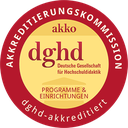Problem-based Learning - A key to facilitate students' learning
If a goal of higher education is to teach students how to use their knowledge to solve real world problems, then how should teaching occur? Nowadays, Problem-Based Learning is considered as a pedagogy which has demonstrated that it enables students to acquire and use knowledge in an effective way. Problem-based learning typically involves students working on problems in small groups of five to twelve with the assistance of a faculty tutor. Problems serve as the context for new learning. Their analysis and resolution result in the acquisition of knowledge and problem-solving skills. Problems are encountered before all relevant knowledge has been acquired and not just after reading texts or hearing lectures about the subject-matter underlying a problem. This latter feature reflects one of the essential distinctions between problem-based learning and other problem-oriented methods.
The present workshop "A key to facilitate students’ learning" deals with the concept of problem-based learning (PBL) and its intended switch from teaching to learning. Next, it addresses how to arrange an appropriate learning environment, and how to develop learning materials to implement PBL in an effective way. Finally, the workshop will assess how teachers can deal with a variety of constraints / obstacles / challenges which force them to seek alternate ways of implementing PBL.
Therefore, the workshop will cover an introduction to PBL as a curriculum and course pedagogy, different formats for designing PBL: learning materials & course design, switching from teaching to tutoring in PBL and adopting PBL to your current course environment as well as dealing with obstacles.
Referent: Prof. Dr. Wim Gijselaers
Termine: Do, 06. Februar 2014
Umfang: 1 Tage
Anmeldung: Hier geht es zur Anmeldung unter Auswahl der Veranstaltung und Angabe Ihrer Kontaktdaten.


